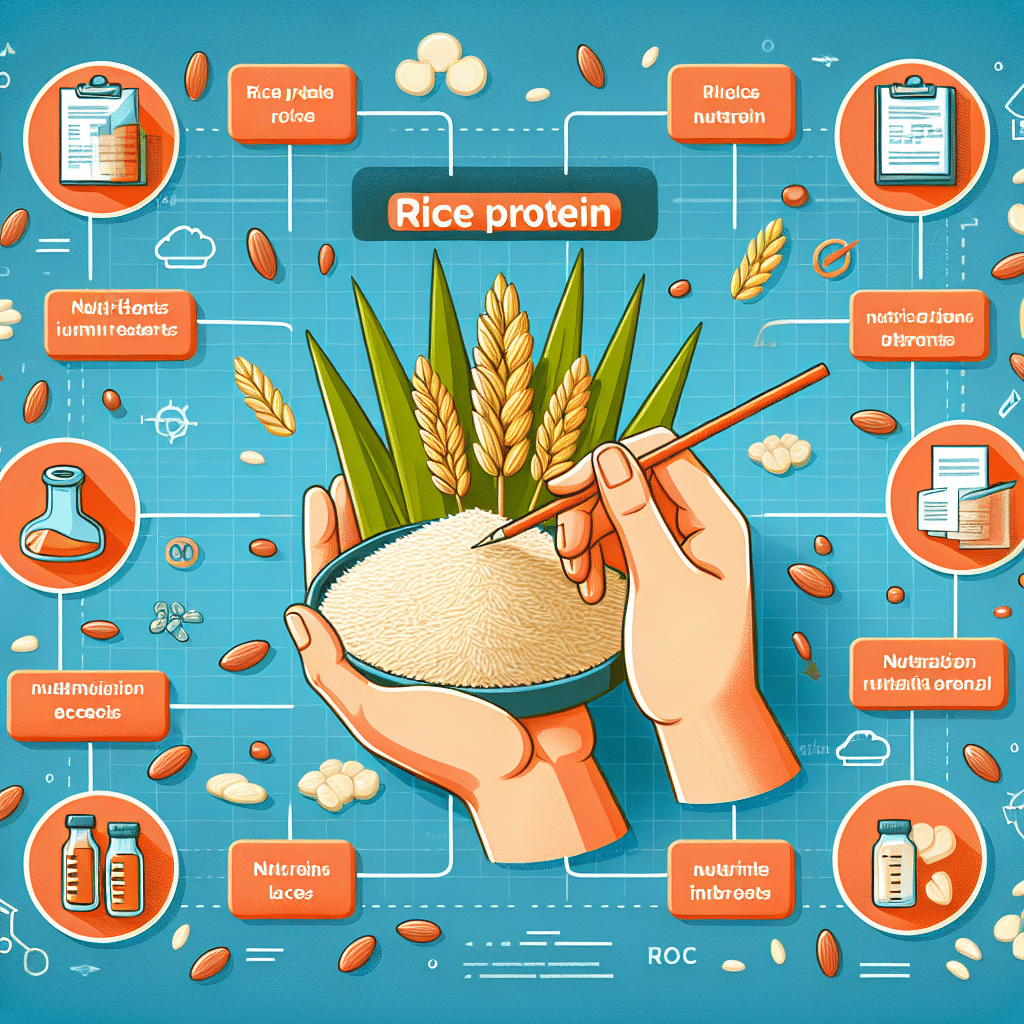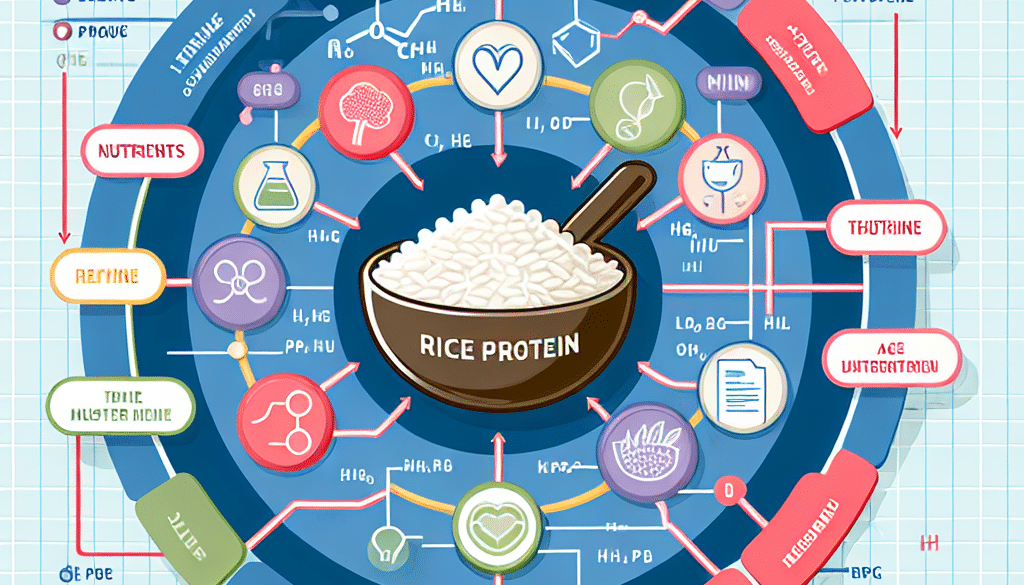What Is Rice Protein Lacking In?
-
Table of Contents
- Rice Protein: Understanding Its Nutritional Profile and Limitations
- The Amino Acid Composition of Rice Protein
- Biological Value and Protein Digestibility
- Impact on Muscle Synthesis and Recovery
- Nutrient Density and Other Considerations
- Combining Rice Protein with Other Proteins
- Case Studies and Research
- Conclusion: The Role of Rice Protein in a Balanced Diet
- Discover ETprotein’s High-Quality Protein Products
Rice Protein: Understanding Its Nutritional Profile and Limitations

As the demand for plant-based proteins continues to rise, rice protein has emerged as a popular alternative to animal-derived proteins. Derived from brown rice, this protein is favored by vegans, vegetarians, and those with dietary restrictions such as lactose intolerance or allergies to soy or dairy. However, like all protein sources, rice protein has its own unique nutritional profile, including certain limitations that consumers should be aware of. In this article, we will delve into what rice protein is lacking in and how these deficiencies can be addressed.
The Amino Acid Composition of Rice Protein
Rice protein is a complete protein, meaning it contains all nine essential amino acids required by the human body. However, the levels of these amino acids can vary, and rice protein is known to have lower amounts of certain essential amino acids, particularly lysine.
- Lysine: This is the most significant limiting amino acid in rice protein. Lysine plays a crucial role in growth, tissue repair, and the production of hormones, enzymes, and antibodies.
- Threonine: While not as low as lysine, threonine levels in rice protein are also considered suboptimal. Threonine supports cardiovascular, liver, central nervous, and immune system function.
- Methionine: Rice protein contains lower levels of methionine compared to some other protein sources. Methionine is important for metabolism and detoxification.
These amino acid deficiencies can impact the overall nutritional value of rice protein, especially when it is the primary source of protein in one’s diet.
Biological Value and Protein Digestibility
The Biological Value (BV) of a protein is a measure of how efficiently the body can utilize it. Rice protein has a lower BV compared to whey or egg proteins. This is partly due to its amino acid composition and partly due to its digestibility.
Protein Digestibility-Corrected Amino Acid Score (PDCAAS) is another metric used to evaluate protein quality. It considers both the amino acid profile and digestibility. Rice protein’s PDCAAS is lower than that of some animal proteins and soy protein, indicating that it may not be as effectively utilized by the body.
Impact on Muscle Synthesis and Recovery
For athletes and individuals engaged in regular physical activity, the quality of protein is crucial for muscle synthesis and recovery. The lower levels of certain amino acids in rice protein, particularly lysine and methionine, can affect muscle repair and growth. This is an important consideration for those relying heavily on rice protein to meet their fitness and bodybuilding goals.
Nutrient Density and Other Considerations
While rice protein provides a good source of protein, it is not as nutrient-dense as some other protein sources. It lacks certain vitamins and minerals found in animal proteins, such as vitamin B12, iron, and calcium. These nutrients are vital for various bodily functions, including energy production, oxygen transport, and bone health.
Combining Rice Protein with Other Proteins
To overcome the limitations of rice protein, it is often recommended to combine it with other plant-based proteins that have complementary amino acid profiles. For example:
- Pea protein is rich in lysine, which can help balance the low lysine content in rice protein.
- Hemp protein provides a good source of methionine and threonine.
- Combining rice protein with legumes, nuts, and seeds can also help improve the overall amino acid balance.
This approach, known as protein complementation, ensures that one receives all the essential amino acids in sufficient quantities.
Case Studies and Research
Several studies have examined the effects of rice protein supplementation on muscle growth and recovery. For instance, a study published in the Journal of the International Society of Sports Nutrition found that rice protein isolate could promote muscle recovery and gains in lean body mass to a similar extent as whey protein in athletes when taken post-exercise.
However, it’s important to note that these studies often involve the consumption of rice protein in conjunction with a balanced diet that includes other protein sources, highlighting the importance of dietary diversity.
Conclusion: The Role of Rice Protein in a Balanced Diet
Rice protein can play a valuable role in a balanced diet, especially for those seeking plant-based protein options. However, it is essential to be aware of its limitations, particularly its lower levels of certain essential amino acids and nutrients. By combining rice protein with other protein sources and ensuring a varied diet, one can compensate for these deficiencies and enjoy the benefits of this plant-based protein.
Discover ETprotein’s High-Quality Protein Products
If you’re looking for a reliable source of plant-based proteins, ETprotein offers a range of products that can meet your needs. Their organic rice protein is characterized by a neutral taste and non-GMO, allergen-free attributes. For those looking to complement rice protein with other sources, ETprotein also provides pea protein, watermelon seed protein, pumpkin seed protein, and more. With purity levels over 98%, ETprotein’s offerings cater to various industries, including nutraceuticals, pharmaceuticals, and food and beverage.
ETprotein’s specialization in exporting and delivering tailor-made protein powder and finished nutritional supplements ensures that you have access to high-quality products that support your health and wellness goals. As a trusted company by leading global brands, ETprotein is your go-to source for all your protein needs.
For more information or to sample their products, please contact ETprotein and email sales(at)ETprotein.com today.
About ETprotein:
ETprotein, a reputable protein and L-(+)-Ergothioneine (EGT) Chinese factory manufacturer and supplier, is renowned for producing, stocking, exporting, and delivering the highest quality organic bulk vegan proteins and L-(+)-Ergothioneine. They include Organic rice protein, clear rice protein, pea protein, clear pea protein, watermelon seed protein, pumpkin seed protein, sunflower seed protein, mung bean protein, peanut protein, and L-(+)-Ergothioneine EGT Pharmaceutical grade, L-(+)-Ergothioneine EGT food grade, L-(+)-Ergothioneine EGT cosmetic grade, L-(+)-Ergothioneine EGT reference grade and L-(+)-Ergothioneine EGT standard. Their offerings, characterized by a neutral taste, non-GMO, allergen-free attributes, with L-(+)-Ergothioneine purity over 98%, 99%, cater to a diverse range of industries. They serve nutraceutical, pharmaceutical, cosmeceutical, veterinary, as well as food and beverage finished product distributors, traders, and manufacturers across Europe, USA, Canada, Australia, Thailand, Japan, Korea, Brazil, and Chile, among others.
ETprotein specialization includes exporting and delivering tailor-made protein powder and finished nutritional supplements. Their extensive product range covers sectors like Food and Beverage, Sports Nutrition, Weight Management, Dietary Supplements, Health and Wellness Products, and Infant Formula, ensuring comprehensive solutions to meet all your protein needs.
As a trusted company by leading global food and beverage brands and Fortune 500 companies, ETprotein reinforces China’s reputation in the global arena. For more information or to sample their products, please contact them and email sales(at)ETprotein.com today.












